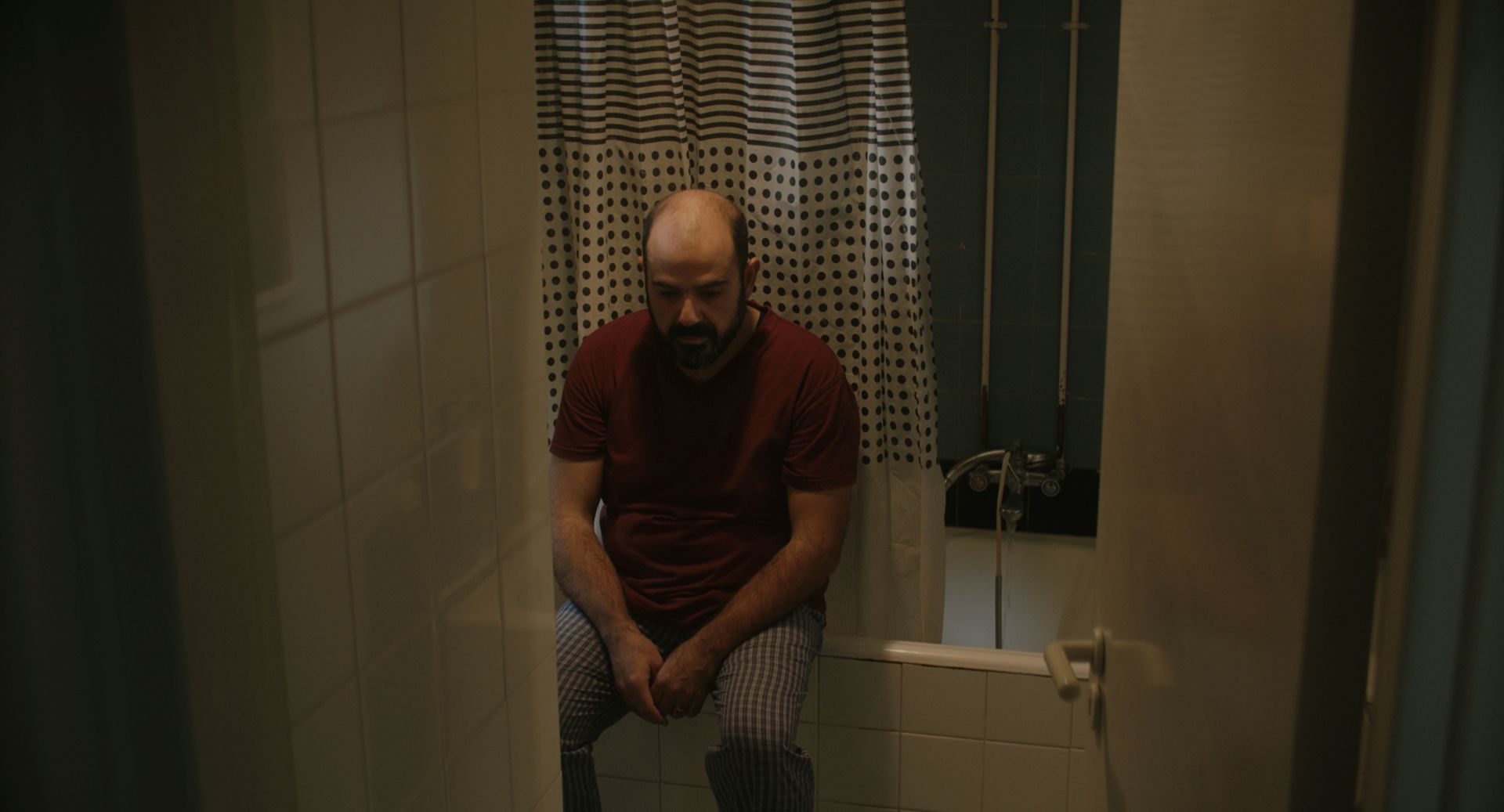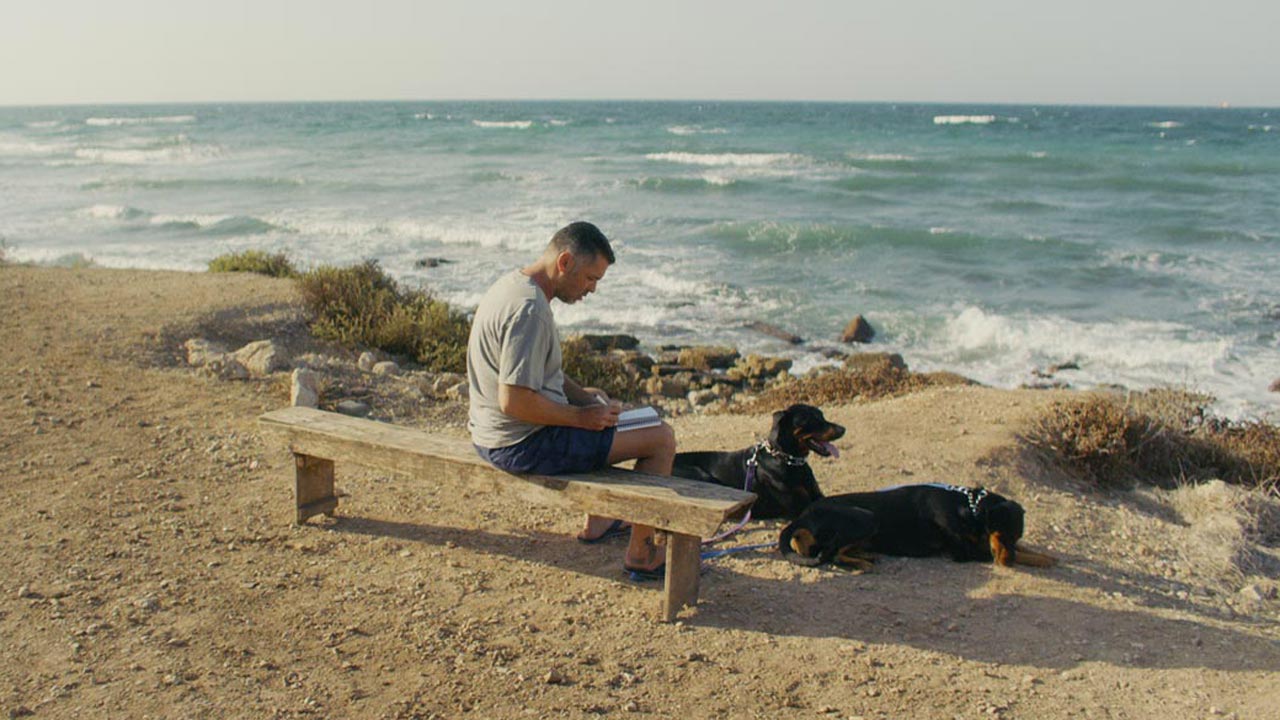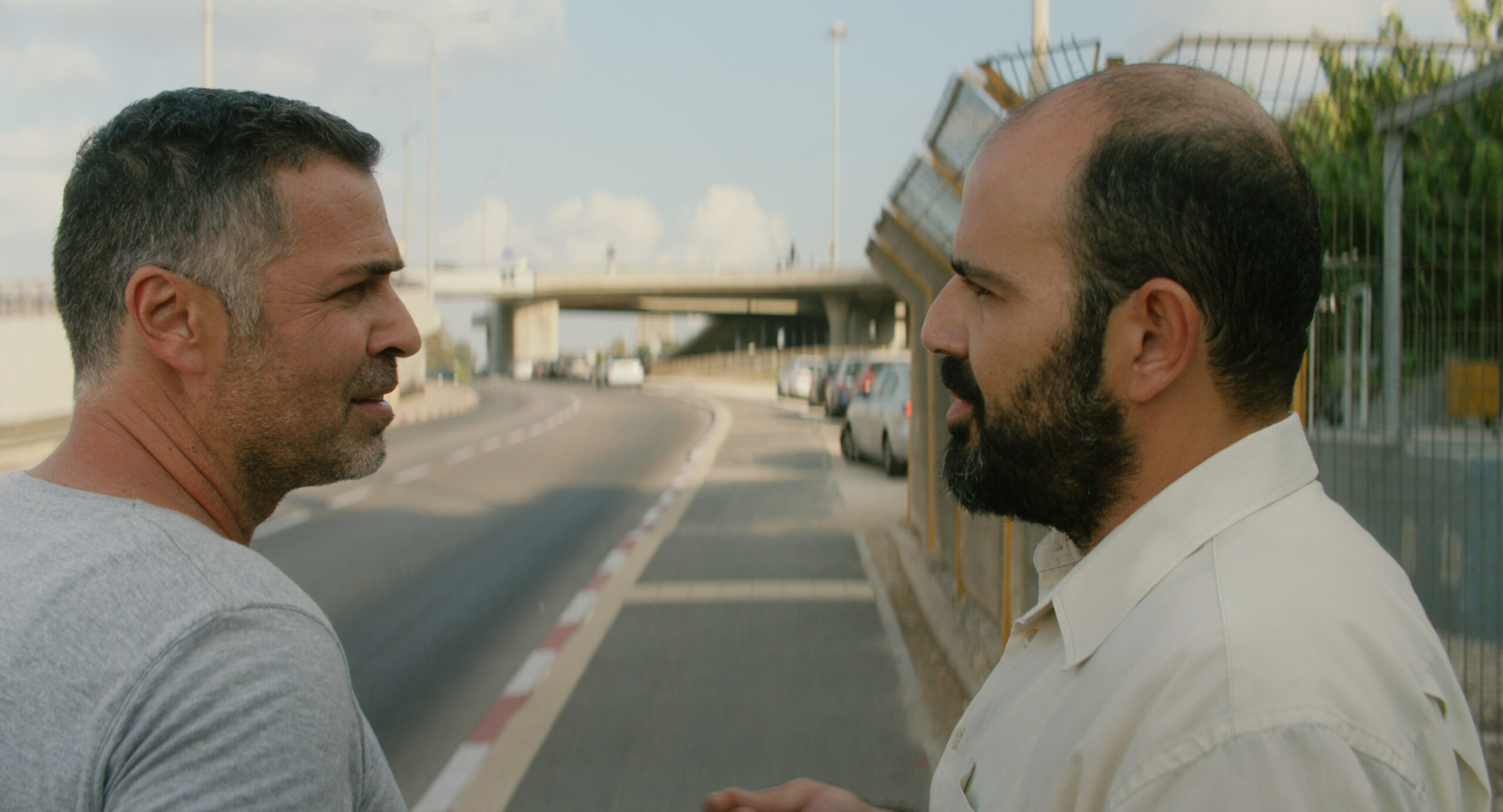Una prima versione di questo articolo è stata pubblicata sul Manifesto il 27 aprile 2023
L'energia della bugia, della finzione – le verità più recondite emanate dal falso, dall'artefatto; Nietzsche, poi Heidegger la chiamavano «poesia»: il finto, foss'anche barocco, l'evocazione di mondi, infraregni di fantasia – è il motore di Mediterranean Fever di Maha Haj (premiato a Cannes) che però ha poco di palestinese, di quello che uno si aspetterebbe da un film palestinese, cioè storie di terre e libertà, di popoli invasi e resistenti di fronte al prepotente.
O meglio, c'è tutto questo nel film di Haj (regista di rara intelligenza), ma – sulla via di Suleiman – dissimulato nell'artefatto (e per questo più incisivo che mai), integrato nel «falso» incesso della narrazione; il «vero» senso della tragedia, la tragedia collettiva, di cui le vicende tutte individuali e «finte» dei personaggi sono il sintomo.
La finzione del teatro, si direbbe, stando alle inquadrature laconiche sulle posture umane, macchina fissa, sopratutto negli interni, che oscilla tra commedia nera e dramma; sguardo ironico, beffardo e orizzonte tragico. C'è una stretta connessione tra la forma di questo film e il suo assunto: la fissità della ripresa è perfettamente funzionale ora all'ironia ora al tragico che emerge nudo, crudo dalla solida cornice del quadro, dalle fredde pareti dell'ipercubo, del vano scabro che è l'immagine di Haj.È la menzogna perpetrata da Waleed, il protagonista, di professione scrittore, «ma non chiamatelo bugiardo: è solo la sua immaginazione», diceva sua madre alle sorelle quand'erano bambini (così Jalal, il vicino di casa, potrebbe essere del tutto inventato dalla mente dello scrittore); lo stato allucinatorio e affabulatorio proprio del depresso (in preda a questa febbre mediterranea, alla persuasione delle immagini autoimposte da un io soggiogato dall'immaginazione) che mentre sperimenta l'impossibilità della creazione si ritrova ad aver composto l'opera, il racconto o pièce teatrale che sia (con tanto di suggello cechoviano), cioè il film.

Tanto che alla fine non si capisce chi tra Haj e Waleed abbia scritto la storia di questa amicizia intrisa di umorismo (macabro eppure lieve: la morte è come esorcizzata in questo primo movimento, scherzo, sgravata del suo nero peso) ed esistenzialismo (con le fragilità emotive che inaspettatamente s'increspano sulla pelle di Jalal, appassionato di poesia araba classica, prima di scomparire) fino ad arrivare alla fine (nel primo dei due finali) a un lirismo trasparente, atmosferico, all'insegna di un canto struggente, funerario, che trama con la pioggia lasca sui conci murari e sul mare, sulla costa in cui muore una barca amorrata, in un tramonto livido. È una manciata di scorci che si offrono allo sguardo silenzioso dopo tanto parlare dei protagonisti; inquadrature percorse dal vento e dal canto. Terra e mare che cantano la scomparsa più triste, che si fonde ad altre innumerevoli morti su quella terra, e al tempo passato, svanito; eppure sembrano promettere qualcosa di presente, di fremente: se non la vita, forse il racconto, nuovo, che è da venire.

*Traduzione di Eliana Carlucci, Serena Ciccarone, Silvia Rita Pellecchia
The energy of the lie, of fiction (the most recondite truths radiated by the untrue, by the artifact; Nietzsche, then Heidegger called it “poetry”: the contrived, though baroque, the evocation of worlds, interregnum of fantasy) is the driving force of Maha Haj's Mediterranean Fever, a Palestinian film (awarded at Cannes) which is not as Palestinian as one would expect, that is stories of lands and freedom, of invaded and resistant peoples in the face of the domineering. Or better, Haj (a director of great intelligence) displays all those elements (similarly to Suleiman) however disguised in the artifact. Therefore, the movie turns out to be more impactful than ever and embedded into the narrative’s “false” pace; the “true” sense of tragedy, the collective tragedy whose symptoms are the individual and “fictitious” events of the characters.
The fiction of theatre: that is what the laconic framing depicting human postures would lead us to think. A still camera (notably indoor) wobbling between dark comedy and drama; a sneering, wry gaze against a tragic horizon. The form and the assumption of the film are closely related: the filming stillness is perfectly functional to both humour and tragedy that emerges bare-bones from the hefty framework, from the cold walls of the hypercube, a bare room impersonating Haj’s cinema. It’s the deceit perpetrated by Waleed (the protagonist as well as professional writer) “but don’t call him a liar, it’s just his imagination”, would say his mother to his sisters when they were children. Thus, the neighbour Jamal may completely be a figment of the writer’s mind: a mediterranean fever, a peculiar-to-depression fabulatory and hallucinatory condition through which the protagonist experiences the hoplessness of creation.
This way, he finds himself composing a chekhovianly branded narrative, opus or pièce théatrale it being, that is the film, to such an extent that it is unclear who between Haj and Waleed has written this friendship story. A story imbued with a morbid but slight humor (in the first movement, a Scherzo, Death is exorcised, relieved of her heavy burden) and existentialism (with such emotional frailty, considering Jalal being fond of classical Arabic poetry, that surprisingly ripples on his skin before fading away). Thus, the first ending exhales a translucent, atmospheric lyricism, in the spirit of a funerary, poignant ode plotting with a light rain against the ashlars and the sea (on the coast where a moored boat dies) under a leaden dusk. It is a handful of glimpses offering themselves to a silent gaze against all the talking; framings penetrated by breeze and chantings. Earth and Sea intoning the saddest demise, merging with bygone age and countless deaths on that land.And yet, they seem to promise something present and thrilling: possibly a new upcoming story. Life.
